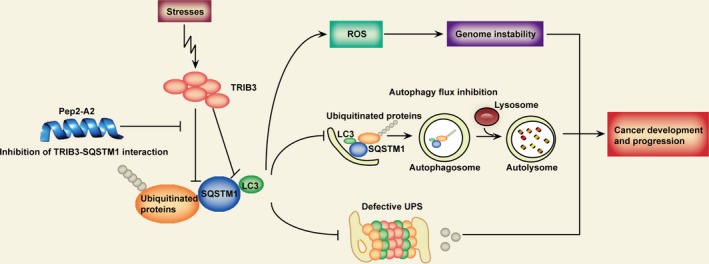Figure 1.

The role of TRIB3 in metabolic stresses induced cancer development and progression. Metabolic stresses increase TRIB3 expression to promote the interaction of TRIB3 and SQSTM1. The TRIB3‐SQSTM1 interaction interferes with the binding of LC3 and ubiquitinated proteins to SQSTM1, which induces the autophagic flux inhibition, subsequently defective ubiquitin proteasome system (UPS) and the accumulation of ROS. ROS accumulation and dysfunction of two degradation systems result in a genome instability and a deposition of cancer‐promoting factors. TRIB3‐binding α‐helical peptide (Pep2‐A2) can interfere with the TRIB3‐SQSTM1 interaction and produce a potent antitumor effect, suggesting that targeting TRIB3/SQSTM1 interaction is a therapeutic strategy against diabetes‐related cancers.
